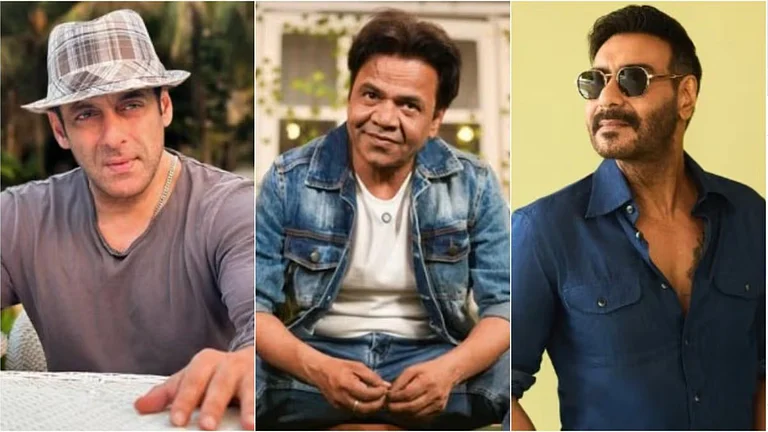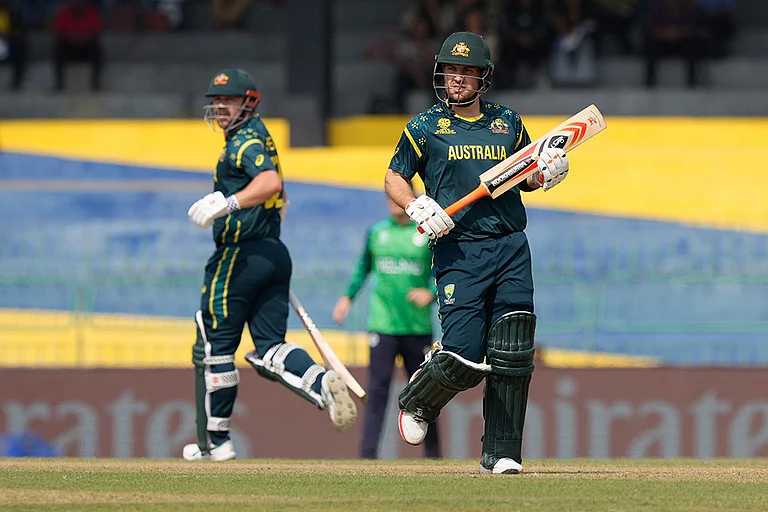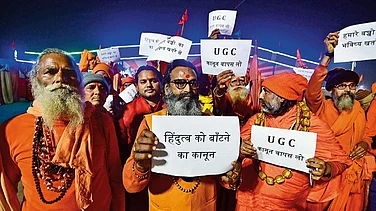For Indian society, marriage has always been considered as a socio-legal sanction that not only gives the couple a social legitimacy, it also provides them with different matrimonial rights including that of succession, parenting, property rights etc. However, Indian legal system till now only supports and promotes the heterosexual marriage. On November 25, the Supreme Court has though asked the centre to respond to a plea by two gay couple petitioners who sought their right to marriage, looking at the earlier reservations of the centre on this issue, one can hardly expect any change.
The US senate on the other, yesterday passed a bill to protect the rights of same-sex marriage. It simply changed the meaning of the marriage from a bonding between a man and a woman to a bonding between two individuals. The simple transition in the definition made them join those countries who have already legalised same-sex marriage.
In the US it was guaranteed under a Supreme Court verdict of 2015. But after the conservative-led SC turned down the progressive Roe Vs Wade verdict making abortion a subjective right depending on the states, the Democrats found it prudent to pass a bill- so that even if the SC turns down its 2015 verdict, the bill supports the same-sex marriage.
In this context, we may ask ourselves – how far have we moved regarding the legalisation of the same-sex marriage? What are the arguments of the petitioners who support the same sex marriage and what do they say who oppose such marriages? To know about the same-sex marriages in India, we must look into the legal troubles and aspects prevalent in the country.
Is right to marry partner of choice legal in India?
Before we start with the nuances of same-sex marriage and its legality, we must know whether Indian judicial system allows us to marry a person of our choice. Though specifically it is nowhere mentioned in the constitution, such rights come from two sources. Firstly, India being a part of the international covenants like Universal Declaration of Human Rights and International Covenant on Civil and Political Rights, is obliged to accept the right to choose partner.
Secondly, Indian judiciary has time and again said that the right to marry the partner of choice comes under Article 21 that protects right to life and liberty. The first instance can be found in Lata Singh versus State of UP where in 2006 the SC said that if the person is not minor, she/he can marry anyone of her/his choice. Again, in 2018, while hearing Shakti Vahini versus Union of India, the apex court said that the choice of marrying someone is protected under both Article 19 that is freedom of expression and Article 21 that is right to liberty.
These references make it clear that the choice of partner without any mention of gender for the purpose of marriage is rightfully recognised by the SC. Then where is it stuck? What are the issues?
Are the gender specific Indian marriage laws the deterrent?
Indian marriages are administered by two different forms of laws. Firstly, the religion specific laws like- Hindu Marriage Act, 1955, Indian Christian Marriage Act, 1872, Muslim Personal Law of Marriage and secondly, the neutral one Special Marriage Act, 1954.
While the religious and personal laws consider marriage as sacrosanct and there are hardly any provisions of changes in terms of defining marriage, the Special Marriage Act, 1954, with tweak, can be the tool under which the same-sex couple can get registered.
Special Marriage Act, 1954 though doesn’t put limits on the faiths of the couple it states that for marriage the man should be of 21 years age and the woman should be of 18 years. This gender specific norm is however only mentioned in the 4(C) of the Act. This part if can be tweaked to say that a man can marry as he reaches 21 and for the woman the same is 18; the same-sex partners can register under it.
In the ongoing case where the bench of Chief Justice D Y Chandrachud asked the central government to respond, the petitioners also asked for their recognition under Special Marriage Act only. While representing the petitioners, senior counsel Mukul Rohatgi said, “And we have taken care not to touch matters of marriage which deal with religion, like Hindu Marriage Act. We are only talking about the Special Marriage Act. The Act starts by saying that you can have a marriage between two persons.”
He also added that it is just a matter of interpretation and said, “But it does not say it should be a union of A and B… that’s a matter of interpretation. It’s too important a matter affecting the whole nation…It’s too important a matter, which should not be further delayed by the examination by the High Courts.”
The apex court however cited the man-woman clause that was mentioned earlier. In this context, it becomes a matter of goodwill of the government and we will have to wait for their response to understand the case further.
What has been the stance of centre?
In February, 2021 while responding to a notice by the Delhi HC that was hearing a PIL filed by a gay couple seeking their marriage registration under the Hindu Marriage Act, 1955, the centre said that decriminalisation of homosexuality doesn’t in any way lead to the acceptance of same-sex marriage.
Referring to the landmark Navtej Singh Johar judgement through which the SC turned down the section 377 of IPC that criminalises homosexuality, the centre said, “Personal private domain of individuals akin to right to privacy and cannot include a public right in the nature of recognition of same sex marriage and thereby legitimising a particular human conduct.”
It also maintained that it was legislators’ domain and the court was not about to adjudicate the matter. The affidavit noted that the legislatures make the laws on the basis of ‘societal values’ and ‘national acceptability’ and added that the verdict of the SC in Johar case was limited to decriminalising particular human behaviour and “was neither intended to, nor did in fact, legitimise the human conduct in question.”
How long it may take for us to legalise same-sex marriage?
Given the recent intervention of the SC, it may be expected that very soon, India will join the countries who have already legalised same-sex marriage. However, it is not that easy as even if it is allowed under Special Marriage Act, the government needs to float an amendment to tweak the meaning of 4(C) of the Act
And if one closely looks at the earlier responses of the centre, one cannot hold on much hope either. However, the US senate’s decision to pass a bill for protecting same-sex marriage may work as an impetus for different democratic nations that are stepping forward to endorse diverse values and notions.


























